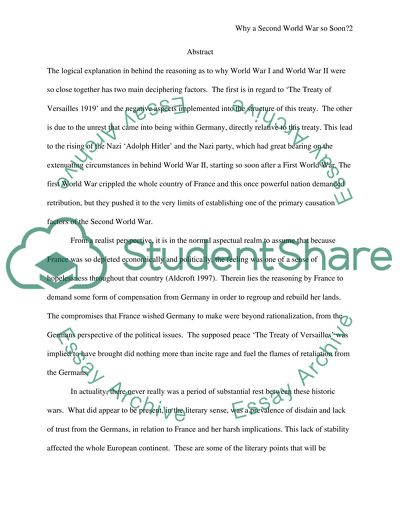Cite this document
(“Why was there a Second World War so Soon After the First Essay”, n.d.)
Why was there a Second World War so Soon After the First Essay. Retrieved from https://studentshare.org/history/1502557-world-war
Why was there a Second World War so Soon After the First Essay. Retrieved from https://studentshare.org/history/1502557-world-war
(Why Was There a Second World War so Soon After the First Essay)
Why Was There a Second World War so Soon After the First Essay. https://studentshare.org/history/1502557-world-war.
Why Was There a Second World War so Soon After the First Essay. https://studentshare.org/history/1502557-world-war.
“Why Was There a Second World War so Soon After the First Essay”, n.d. https://studentshare.org/history/1502557-world-war.


